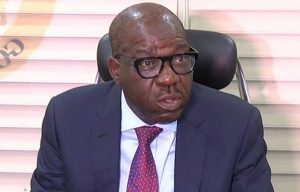Airlines May Increase Fares as Aviation Fuel Price Reaches N1,300 per litre

Airline operators have warned that they may be obliged to raise rates as aviation fuel prices rise above N1300.
Obiora Okonkwo, the spokesman for local airlines, issued a statement on Friday calling for quick government involvement to prevent the collapse of local airlines.
The airlines said that the volatility in foreign exchange rates and the soaring cost of aviation fuel at N1,300 per litre had disrupted operational planning and stability within the aviation sector.
The Central Bank of Nigeria on June 14, 2023, unified the different segments of the forex market, causing the naira to depreciate significantly at both the official and the autonomous markets.
The local currency weakened to over 1,500/$ at the parallel on Wednesday and exchanged 1474.62/$ at the official market on Thursday.
The country has been struggling with lingering dollar scarcity due to reduced oil production, which brings in over 90 per cent of the country’s dollars.
This has made it difficult for local carriers to raise enough foreign exchange to run checks and conduct comprehensive maintenance of their fleets overseas.
Okonkwo, who also chairs United Nigeria Airlines, explained that the unforeseen increase in aviation fuel prices from N700 per litre and the rise in the exchange rate to 1,400/$ had resulted in significant losses for airlines.
Passengers who purchased tickets well in advance under previous rates were being airlifted at the current higher costs, further impacting the airlines’ loss in the revenue stream, he explained.
“We are making losses on factors that are beyond our control. We are not only faced with the problem of scarcity of dollars; even the aviation ecosystem is feeling the heat. Handling companies have increased the cost of their services, airports have increased their charges and those that service the aircraft have also increased the cost of their services. The monies for these payments are coming from the passengers who are already exhausted financially,” he said.
Okonkwo noted that numerous businesses in Nigeria were experiencing low returns, leading to a decline in the number of essential passengers travelling during both peak and off-peak seasons. He stated that as a result, the airlines were struggling to maintain adequate load factors to support their operations during the current low season, as there were fewer travellers for tourism and social engagements.
“Passenger traffic has shrunk because even those on social engagement like weddings, burials, and other ceremonies may not be inclined to spend money on flight tickets; they would rather send credit alerts to those hosting the events who would appreciate such gestures. So, they pay instead of appearing in person.
“Air travel is a catalyst to economic development. There should have been government engagement with airlines at different levels. Airlines do not have special forex allocation; so, they buy at the same place traders who trade in Brazilian hair, textiles and others buy.
“Our passion to remain in this business is being eroded. We are at the point of oxygen supply. Some airlines are going into a coma. Our equipment is diminishing. The minimal revenues we earn to keep the airlines flying, we convert to pay our lessors,” he noted.
According to Okonkwo, it is impossible to bring in more aircraft. Aircraft owners have become sceptical because of country risk.
“A Nigerian airline may meet their terms, all the standard criteria but the aircraft owners consider country risk above other factors. Country risk supersedes everything and lessors have their own obligations. So, there is nothing personal. Some airlines deposited money with the Central Bank of Nigeria but they cannot provide us the needed dollars,” he added.








